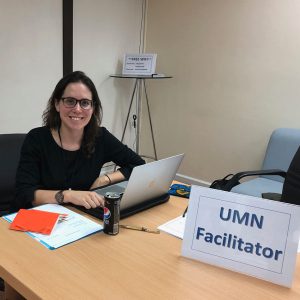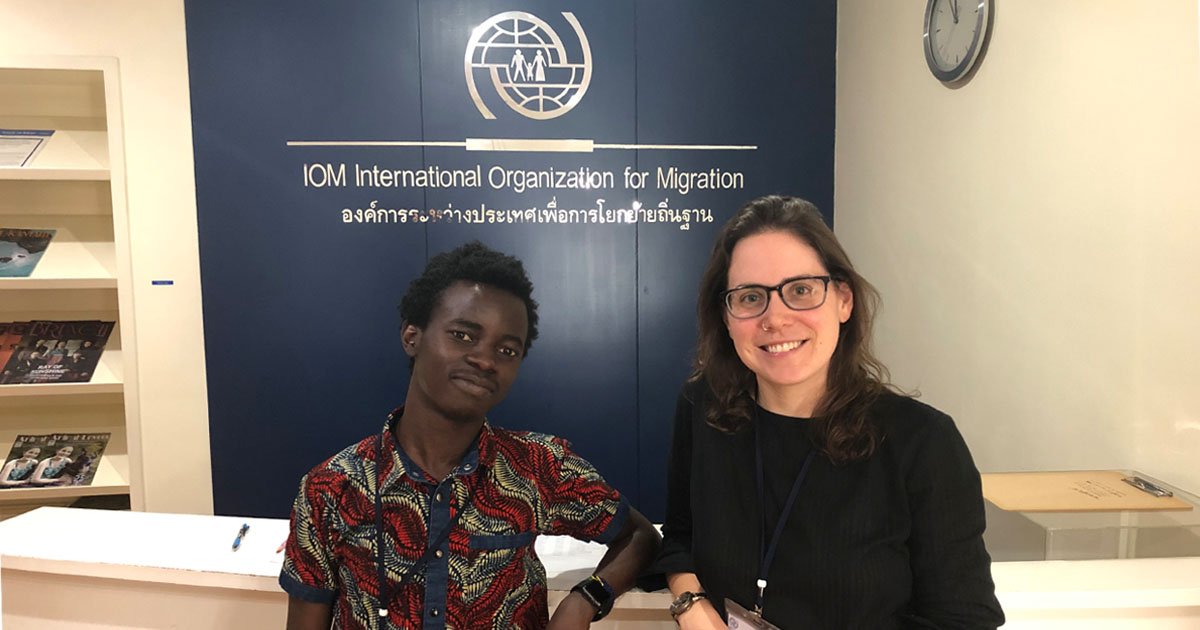Approximately 100 million people have been forcibly displaced around the world as a result of war, conflict, and human rights violations. These people may face unique public health challenges related to displacement.
What specific issue, problem, or area of research in public health do you care the most about and why? [Erin] Broadly speaking, I am interested in how we can improve the health of people who have experienced forced migration. Approximately 100 million people have been forcibly displaced around the world as a result of war, conflict, and human rights violations. These people may face unique public health challenges related to displacement.
Are you currently involved in any public health research or professional work?
[Erin] I work full-time at the U of M Center for Global Health and Social Responsibility. In that role, I manage two refugee health programs. One program is called the National Resource Center for Refugees, Immigrants, and Migrants. Funded by the CDC, this program was established during the pandemic to address health inequities among refugee, immigrant, and migrant communities in the US. Another program I manage is a partnership between the University of Minnesota and the UN Migration Agency.
In terms of public health research, I led a survey research project at the U of M D2D Research Facility at the State Fair this summer. The study looked at awareness of liver cancer risk factors, hepatitis B vaccination, and health campaign preferences. I have also been working on a literature review and meta-analysis looking at differences in hepatitis-B-associated liver cancer among urban and non-urban areas in Africa.
Why did you choose to come to the U of M School of Public Health?
[Erin] I have worked at U of M for a number of years, so it seemed like a natural next step to continue to pursue my education here. There is a ton of great work that is happening both at SPH and in the wider, University community. It was also very practical, because I can utilize U of M’s Regents Scholarship, which allows me to continue working while pursuing my PhD.
What are you most excited about in SPH’s Strategic Plan for Antiracism?
[Erin] I was really excited to see the goals for leadership to engage and partner with communities, especially plans to establish a community advisory board (CAB). Involving community members and honoring their time through paid roles on a CAB is really important.
What do you like about being in Minnesota?
[Erin] First, I love trying new restaurants. Some of my favorites are Hola Arepa, Boludo, and Manny’s Tortas in the Midtown Global Market. Next, I really enjoy the outdoor spaces, like our parks, lakes, and bike trails. Finally, and this might be a strange one, but MSP is a super comfortable airport.

